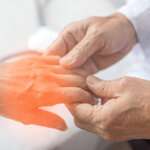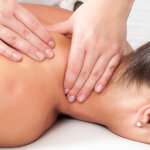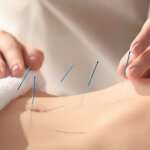While many have heard of it, few know very much about it. Yet acupuncture is one of the oldest healing arts in the world, practiced centuries ago by ancient Chinese as a method of curing a host of ailments.
There are currently more than 10,000 certified acupuncturists, one-third of them physicians practicing in this country.
Acupuncture involves the application of extremely fine needles into one or more of the 2,000 acupuncture points on the human body. These points are said to link 12 main and 8 secondary pathways. These channels, or pathways, are called “meridians.” The meridians are believed to conduct energy between the body’s skin and internal organs. Part of the controversy surrounding acupuncture stems from the fact that scientists cannot correlate the 20 pathways, or meridians, with the human body’s blood circulation and nerve paths.
Nevertheless, acupuncture theory holds that energy conducted by meridians, also called qi (pronounced “chee”), is known to coordinate the balance between one’s spiritual, emotional, mental, and physical state. Acupuncture is believed to help in balancing the opposing forces called yin and yang. A healthy person’s yin and yang are said to be in a state of harmony.
Acupuncture has about as many critics as it does advocates. Medical researchers have shown in dozens of high profile studies, however, that acupuncture can be an effective alternate treatment for a myriad of health problems from central nervous system-related conditions and immune system response.
Acupuncture is known to have a profound impact on pain. The theory is that the application of fine needles in acupuncture points stimulates the release of chemicals, such as endorphins or opiates, which dull or alleviate pain while releasing hormones, neurotransmitters, and other chemicals that aid in healing or regulating things, such as blood pressure.
Evidence has shown that the body’s 2,000-plus acupuncture points do conduct electricity, and this flow of current may play a role in triggering the release of helpful chemicals in the body to where they are needed most.
Does acupuncture hurt?
Acupuncture needles are so incredibly small and thin (up to 50 times thinner than a standard hypodermic needle), they are barely noticeable when inserted. Some people who experience acupuncture report feeling nothing at all; others report feeling a mild discomfort, followed by a mild sensation of cramping, tingling, numbness, warmth, or heaviness. Acupuncture needles are normally left in place for 20 to 40 minutes.
Acupressure, another alternative therapy rooted in ancient Eastern medicine, involves exerting pressure on specific body points by use of the fingers of the hand, palm, or elbows.
Overview
A form of traditional Chinese medicine, acupuncture is the process of inserting thin needles into specific points throughout the body’s energy channels called meridians. An acupuncture session with us might be just what you need if you suffer from pain caused due to migraines, lower back pain, have problems with your digestion, or have not been feeling yourself lately. Here’s what you should know about acupuncture for functional medicine.
What is Acupuncture?
Acupuncture is a form of traditional Chinese medicine that involves the insertion of thin needles into the skin at specific points to stimulate the movement of energy through a network of energy channels known as meridians. These meridians exist throughout the body, and a blockage in any one of them can lead to the onset of illness and disease that can affect not just the body, but your mind and spirit as well.
What Are the Benefits of Acupuncture?
According to modern research, acupuncture has proven to be effective at stimulating the body’s various systems, including its cardiovascular, digestive, and immune systems. Regular acupuncture sessions can reduce chronic pain, improve digestion, and promote a sense of overall well-being.
Acupuncture can be used to treat a variety of ailments, including:
- Headaches and chronic migraines
- Lower back pain
- Osteoarthritis and knee pain
- Depression and anxiety
- Digestive issues
- Menstrual cramps
- Nausea and vomiting in patients with cancer
What to Expect During an Acupuncture Session
If you’ve never been to an acupuncture session before, it’s only natural that you might wonder what to expect during your first appointment. An acupuncturist at Healthy Life Wellness Center will begin by asking you a series of questions regarding your overall health status and if you have any areas of pain that need to be worked on. They may also do a quick physical examination that includes checking your pulse rate, as well as the color and coating of your tongue.
This assessment will be the basis on which your acupuncturist carries out a treatment plan. The acupuncture session will then begin by lying down on a treatment table, either face up or down. Thin needles are then inserted into various acupressure points to stimulate the flow of energy and can be in place for up to 30 minutes. Most patients report feeling no to very little discomfort—and only do so if they move around during treatment. If necessary, heat therapy, massage, topical herbal medicines, and cupping may also be recommended as accompanying procedures.
For more information about Acupuncture NYC, contact Apex Health at (212) 242-3210 or (646) 952-0366 to schedule a no-risk consultation.







